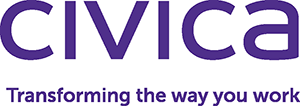Responding to the digital citizen in NI
A holistic approach to digital transformation.
We are truly immersed in the digital era. With the highest broadband take-up, Northern Ireland has quickly become the UK’s leading digital hub. This spread of digital also continues at a pace throughout the rest of the UK. According to the Office for National Statistics, almost 90 per cent of adults in the UK used the internet in the last three months. Perhaps surprisingly, and at odds with the commonly held belief, 37 per cent of those were aged 75 years and over.
Civica’s recent leadership forum brought together industry peers to discuss the changing landscape for public service delivery. They realised that by 2025, Generation Y (an online self-service generation completely immersed in digital life from birth) will be the new norm and demand public sector services to be compatible with their lifestyle.
This shift towards digital means citizens are demanding, if not driving, the transformational agenda for public sector services today and tomorrow. So how can the public sector in Northern Ireland respond to the digital agenda being set?
To meet this demand the public sector needs to adopt a 360 degree approach to digital transformation; a holistic view underpinned by three strategic pillars:
1. Capture: It’s vital for public services to know what their citizens want and need. To do this they have to effectively capture data and information from all interactions. Recently this was achieved through traditional channels such as phone, post and email. To fulfil those requests staff are employed to rekey the same information into a number of back office systems. Providing a multi-channel service will allow the public sector to not just capture and automate the integration of data, but also give citizens the ability to
self-serve – raising, tracking and updating service requests anytime, anywhere and on any device.
2. Deliver: To provide a holistic end-to-end view, it is important that those interactions and service requests are integrated into the line of business systems. By getting accurate and complete information the delivery of services to citizens can become much more efficient. Additionally, a joined up approach to digital can provide the management information needed to further understand citizen’s needs and improve service demand management.
3. Communicate: A well informed customer is a happy customer. But just as important is preventing avoidable contact. Keeping citizens informed about their service requests with updates on their channel of choice (online, SMS, social media, email etc), can ensure every interaction is efficiently managed; preventing avoidable contact and further improving the citizen experience.
Today, Civica’s Digital 360 capability is helping the public sector achieve a holistic approach to digital transformation – a proven approach which delivers significant cost savings, increased efficiencies and improved customer satisfaction.
With our partners BT, we are helping NI Direct transform how citizens engage with NI government today and tomorrow. As part of its “16 by 16” Programme, NI Direct aim to deliver sixteen transformed services and 3.5 million new transactions by April 2016. This end-to-end and holistic digital transformation has not only unlocked cost efficiencies and improved customer satisfaction, but has also allowed public sector organisations to bring new innovative revenue streams online.
To learn more about how the NI public sector can meet the demands of the digital citizen, download the report from www.civica.co.uk/changinglandscape and start the conversation with Civica.
Contact Details
Civica Digital Solutions Ireland
Tel: 02890 725 000
Web: www.civica.co.uk/digital-solutions
 About Civica
About Civica
Civica is a market-leading specialist in software, technology and outsourcing services that help teams and organisations around the world to transform the way they work. Combining exceptional customer focus, experience and commitment, Civica supplies more than 4,000 organisations in the UK, Ireland, Australia, New Zealand, Singapore, Canada and the USA.





